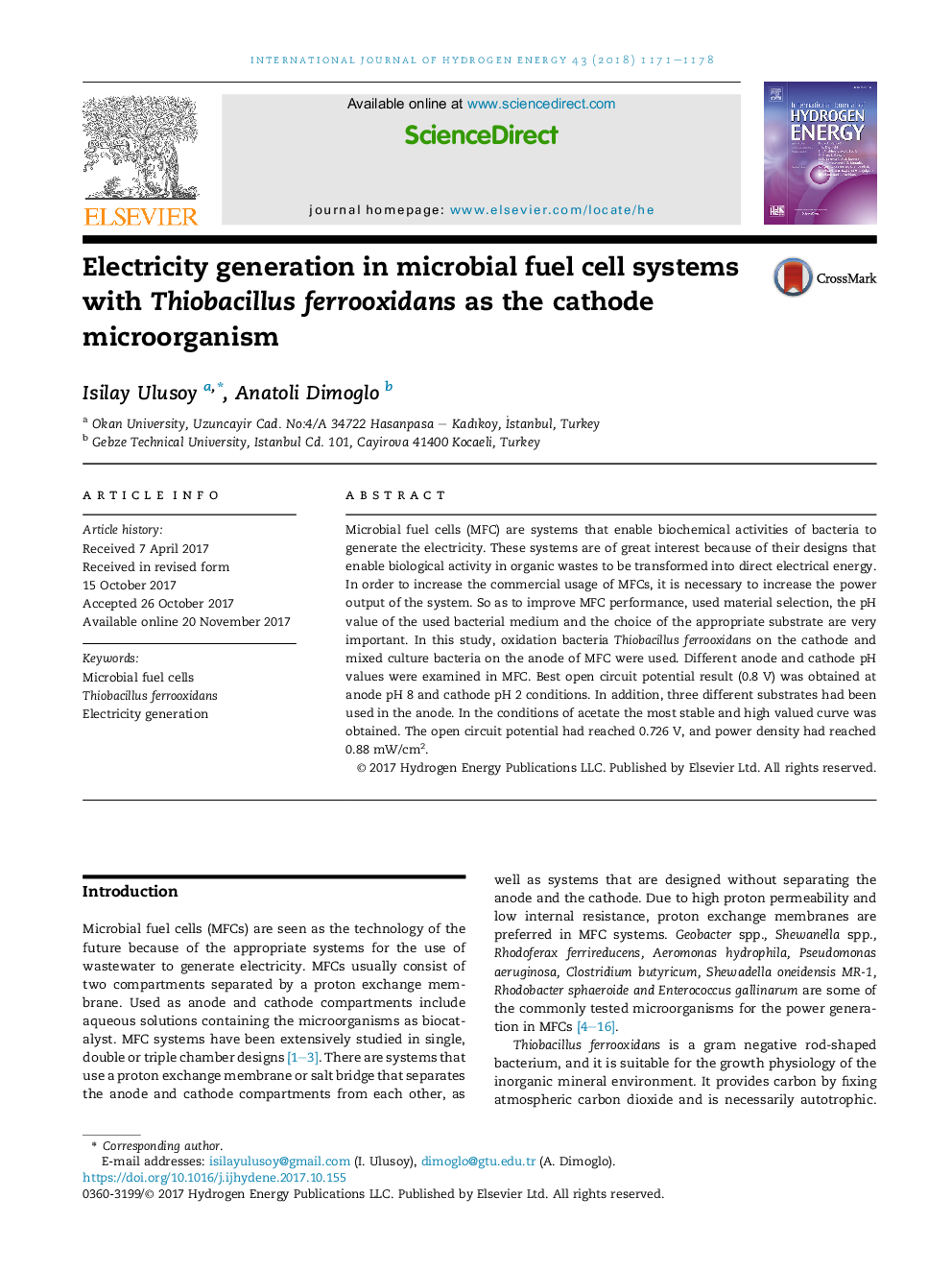| Article ID | Journal | Published Year | Pages | File Type |
|---|---|---|---|---|
| 7708911 | International Journal of Hydrogen Energy | 2018 | 8 Pages |
Abstract
Microbial fuel cells (MFC) are systems that enable biochemical activities of bacteria to generate the electricity. These systems are of great interest because of their designs that enable biological activity in organic wastes to be transformed into direct electrical energy. In order to increase the commercial usage of MFCs, it is necessary to increase the power output of the system. So as to improve MFC performance, used material selection, the pH value of the used bacterial medium and the choice of the appropriate substrate are very important. In this study, oxidation bacteria Thiobacillus ferrooxidans on the cathode and mixed culture bacteria on the anode of MFC were used. Different anode and cathode pH values were examined in MFC. Best open circuit potential result (0.8Â V) was obtained at anode pH 8 and cathode pH 2 conditions. In addition, three different substrates had been used in the anode. In the conditions of acetate the most stable and high valued curve was obtained. The open circuit potential had reached 0.726Â V, and power density had reached 0.88Â mW/cm2.
Related Topics
Physical Sciences and Engineering
Chemistry
Electrochemistry
Authors
Isilay Ulusoy, Anatoli Dimoglo,
